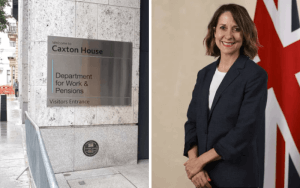Two-thirds of disabled passengers experience at least one problem when travelling by rail, according to research commissioned by the government.
The research was carried out in 2017 but was only published this week when the Department for Transport (DfT) marked a year since the launch of its Inclusive Transport Strategy.
The research, commissioned for DfT by the Transport Focus watchdog, also showed that more than one in five disabled passengers find rail travel difficult.
Many of the more than 1,500 disabled passengers interviewed for the research said they had to plan their journeys in “meticulous detail” to ensure a successful trip.
And not one of the 50 disabled people who took part in in-depth interviews for the research said they were aware that they could use passenger assistance services without booking in advance – if staff are available – through the so-called “turn up and go” service.
Those who used the “passenger assist” service reported frequent failures, including being left on a train at a terminal; not being met at a station when they needed to exit the train; not being met at their departure station; and experiencing “rude and discriminatory” behaviour from staff.
Nearly a third of those surveyed (31 per cent) said they had experienced anti-social or discriminatory behaviour from other passengers.
This week, DfT invited the rail industry to nominate stations across Britain to benefit from a £20 million fund that will pay for small-scale access improvements such as tactile paving, handrails and Harrington Humps, which increase platform heights so passengers with mobility impairments can board trains more easily.
The £20 million was first announced by DfT in April and is part of the £300 million government funding to be spent on access improvements under the Access for All programme between 2019-20 and the end of March 2024.
Nusrat Ghani, the accessibility minister, said: “While many take for granted the ability to travel easily from A to B, access for the fifth of people who identify as disabled can be far from straightforward.
“We want disabled people to travel easily, confidently and without extra cost, which is why it is fantastic to be opening this fund today.
“I look forward to seeing what ideas the industry has for accessibility improvements as we work towards a more inclusive rail network.”
John Welsman, a guide dog owner and policy lead for travel and mobility at the charity Guide Dogs, said: “Guide Dogs welcomes the additional funding as independent train travel is a real challenge for people living with sight loss.
“Elements like tactile paving on platform edges and steps, better signage, improved lighting and colour contrast, will make stations easier to negotiate confidently and more safely.
“However, train travel is still a very complex environment for people with sight loss and we will continue to work to find solutions so that no one with sight loss is left out of life.”
The announcement in July 2018 that the government would spend £300 million over five years followed years of funding cuts to Access for All, originally introduced by the last Labour government in 2006.
Disability News Service secured figures last July through a freedom of information request that showed that spending on Access for All had fallen from as much as £81.1 million in 2013-14 to just £14.6 million in 2017-18.
Spending in 2009-10, the last year of the Labour government, was £53.9 million, with £41.2 million in 2010-11, £50.7 million in 2011-12, £39.7 million in 2012-13, and £81.1 million in 2013-14.
But spending then plunged over the next four years – in the first five-year planning period to begin under the coalition – with just £22.9 million in 2014-15, £24.6 million in 2015-16, £32.1 million in 2016-17 and only £14.6 million in 2017-18.
Although it is not yet clear how much was spent in 2018-19, the government is planning to spend £300 million over the next five years on Access for All, including £50 million that had been deferred from the last five years.
A note from the editor:
Please consider making a voluntary financial contribution to support the work of DNS and allow it to continue producing independent, carefully-researched news stories that focus on the lives and rights of disabled people and their user-led organisations.
Please do not contribute if you cannot afford to do so, and please note that DNS is not a charity. It is run and owned by disabled journalist John Pring and has been from its launch in April 2009.
Thank you for anything you can do to support the work of DNS…

 Frustration after government only issues partial ban on new floating bus stops
Frustration after government only issues partial ban on new floating bus stops Making all self-driving pilot schemes accessible would be ‘counter-productive’ and slow us down, says minister
Making all self-driving pilot schemes accessible would be ‘counter-productive’ and slow us down, says minister Ministers are secretly considering means-testing PIP, DWP admits, despite pledge in green paper
Ministers are secretly considering means-testing PIP, DWP admits, despite pledge in green paper